What is the best option for building our next resilient home?
We are currently living within the GTA area but looking to buy a land (within the next couple of years) about 2 hours away from the central Toronto area and build a new home. It will be a small 2-bedroom bungalow or rancher (just under 1400 sqft) that we would keep, essentially forever.
We are both few years away from retirement. Once we build the house, we plan to travel for about 4 to 5 months of the year (mostly winter and few months in summer) mostly in USA & Canada. As we become older, we plan to live in the house for longer durations.
Given this, what would be a sensible approach in building this house? Of course, we are interested in health/comfort, lower energy cost and longevity during the ownership of the house. Basement space is a nice to have but not a must if that significantly helps reduce build cost.
I have read many of the articles posted on this site but starting a such process still appears to be rather daunting. Assuming the land does not have any city hookup infrastructure, is it realistic for us to build a fully liveable "passive" house for under $350-$400kCA (land excluded in this price)?
Thank you.


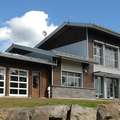


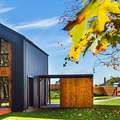

















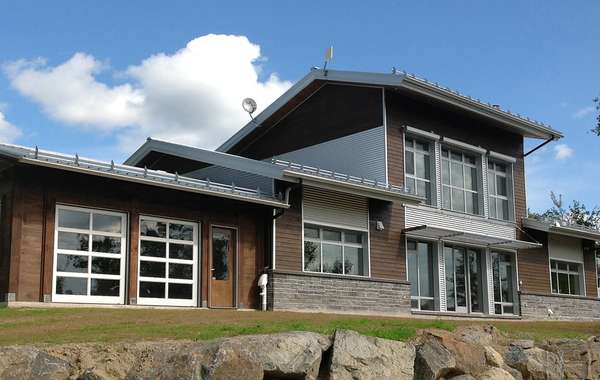
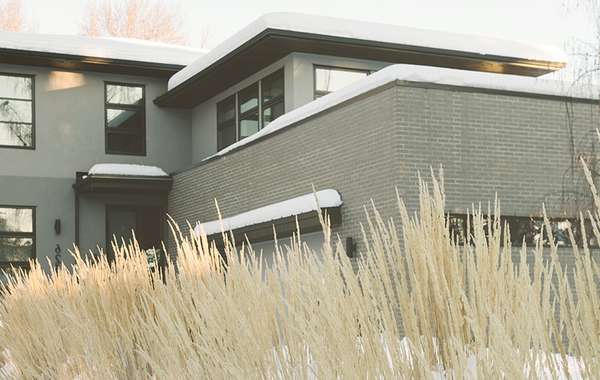

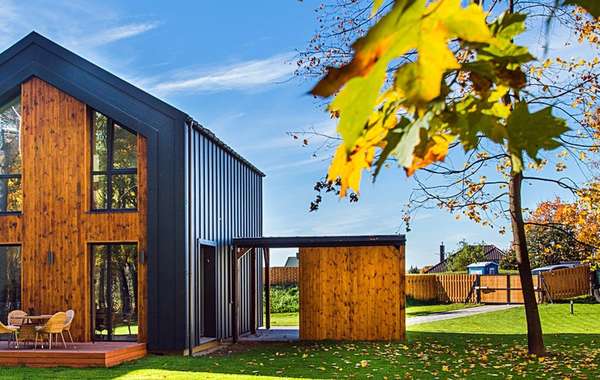

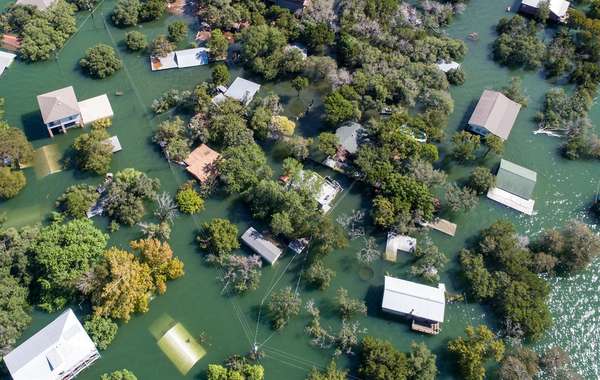

Our recommendations to everyone building a home is for the same, aim for energy efficiency, durability, safe indoor air quality and responsible material choices etc. I would point you to our guide pages to search by category or keyword -
Green building guide for high performance construction techniques
On top of that, we would suggest you take extra time on resilient home design. Since you won’t be there a lot of the time, try to foresee any issues your home may face and add design features to deal with them passively.
Here is a short list of measures you might want to consider that will help protect your home while you are away for long periods, and we have included as many relevant links as we can think of:
Choose a suitable lot to build a home with consideration put towards soil quality, water tables, emergency service access, and close enough to a community so you could have someone on call that can attend to your home regularly.
Super-insulated homes such as passive house, and designing a home for passive solar heat collection will keep your energy costs at a minimum and also help it stay warm in the event of power failures.
When you suggest a basement, my first thought would be to avoid that and stay above grade. Building a basement is typically a more expensive way to build, and even if you take measures to protect it against flooding, you will still be at risk. A slab on grade house on high ground will safeguard your home against extreme weather events in a changing climate.
If you do choose to go with a basement, please see our guide to durable and healthy basement construction, and take extra durability measures such as installing a sump pump, possibly a second one depending on water tables, and even a battery backup.
Choose durable roofing materials to protect against high winds, such as a professionally installed and well-fastened metal roof, or a living green roof. Asphalt shingles are the least durable and are susceptible to damage from wind and hail.
Smart homes and home monitoring with devices– control the systems of your home remotely, and monitor for intruders, temperature swings, and get smart phone notices for leaks from basements and or appliances.
We make no secret of the fact that we prefer slab on grade homes over basements, and particularly in your situation. Aside from what we mention above, it’s great to have a retirement home on a single level so you can avoid the need to negotiate stairs if you have mobility issues in the future. That said, we also have information on downsizing and home design for seniors, that you may want to consider now for when your travelling days end.
And to address the issue of cost – yes, you will put more money into a durable and efficient home, but they pay for themselves in the long run. As you plan to stay in this for the long term, we truly believe that the added investment for a greener home will pay off. The best way to keep costs down is to keep the size down and the design simple, so take time to consider how big a home you really need.
Hi, I am hoping to start a hemp home construction company, I beleive you cant go wrong building a hemp home they are amazing ! Not only eco friendly beyond belief but load baring, self insolating, mold and mildew resistant, fire proof, withsatnd 180 mph winds, no need for heat or a/c so leaving that optional, the whole home can be built with hemp, itscarbon posittive and negative and cost about as much as a mortar home. Hemp blocks are like legos they are interlocking and you would be amazed at the technigue. I highly think we should build these homes along the coast lines and in fire prone areas. Im hoping that putting this out there I can find investors in helping me make my dream a reality. I am not finacially stable to do this on my own just yet but I am working on that part also with another business. I hope you take a look into Hemp Blocks and get back to me with what you think. Happy Building from all of us at "tri-hemp homes" the future homes of america saving the world 1 hemp home at a time.
Casey Bobbitt and Dennis Trombley
Princeton La
Hi Casey. From our research we haven't found hemp blocks to be quite as good as all that unfortunately. Hemp is a great building material but in our opinion building a home from compressed hemp blocks is not the best way to do use it as an insulation. There are companies that already do that, and so far what we've seen are plastic blocks enveloped in a mix of compressed hemp and cement. So it has a lot of plastic in it, and from what we have found, the process for compressing the blocks is pretty high in embodied energy. Energy consumption and emissions from manufacturing need to be factored when calculating the carbon footprint of any building material or a total house build if you really want a clear picture of the ecological impact.
As for home performance, hemp has an R value comparable to other insulations like mineral wool, fiberglass, or EPS foam, and just like any other insulation chosen for a house build, the heat load of a building will depend on the climate zone, and many aspects of the building envelope from how airtight it is, how thick of a wall you make, attic/roof insulation, window quality and even window orientation for solar gain.
As for heating and cooling - AC may be optional, however omitting it may be quite hot in some climates. And you would absolutely need heating in any cold climate where home heating systems are required. Hemp blocks are not a particularly airtight way to build either, so this is not an all-in-one sort of product, you would need a dedicated air barrier for energy efficiency.
This is not to try to deflate your business idea but rather to help you go into it with realistic expectations. We have put some thought to in in the past, and better in our opinion than blocks would be a stick-framed house with hemp batt insulation.
,